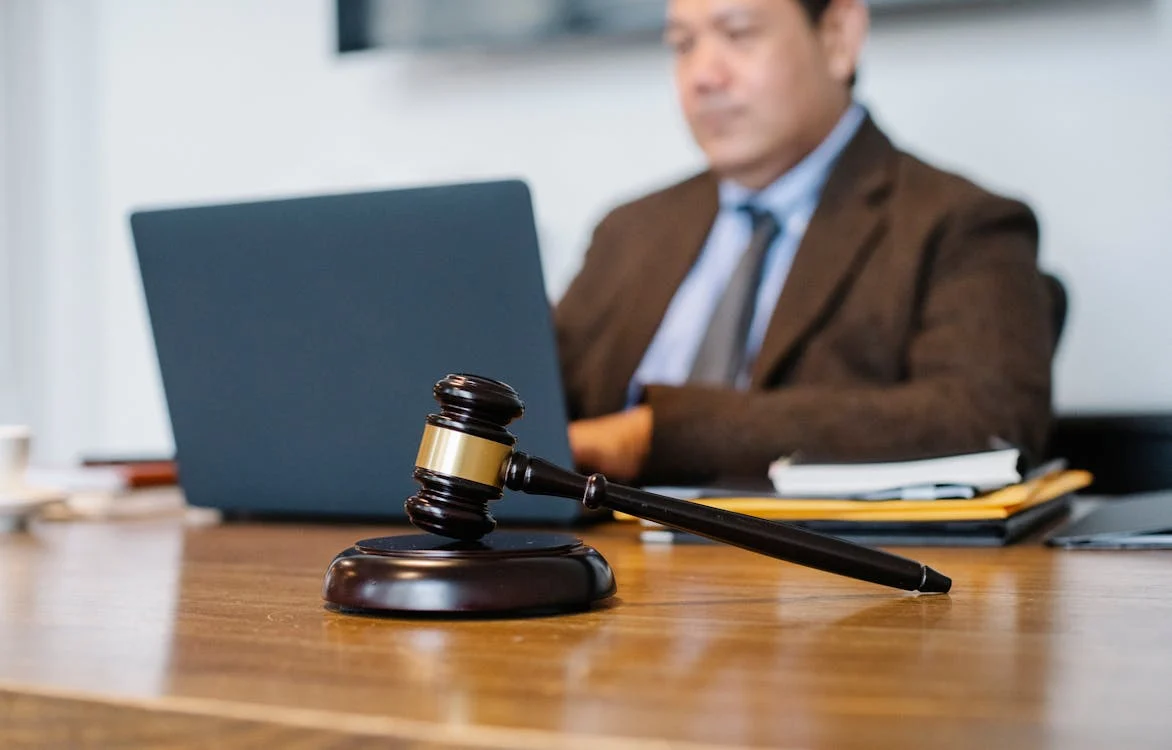Best Lawyer For Roundup Lawsuit in 2024

Roundup, containing glyphosate, which has been linked to cancer, has led to approximately 165,000 lawsuits against Bayer AG and Monsanto for not warning about the risks of this weed killer.
By February 2024, six lawsuits were successful—the latest being a $2.25 billion Philadelphia jury verdict in January 2024 for John McKivison, who developed non-Hodgkin’s lymphoma after two decades of using the weedkiller.
If you or a loved one has developed cancer after heavily using this weed killer, you may be able to pursue compensation from a Monsanto Roundup lawsuit.
You may be qualified for a Roundup cancer lawsuit if you or a family member was diagnosed with cancer such as non-Hodgkin’s lymphoma, multiple myeloma, or leukemia; have a history of using or exposure to Roundup at home or work for at least a year; and your claim is filed within your state’s deadline for such lawsuits.
You’ll need a lawyer’s help to file the lawsuit. And choosing the best lawyer for your Roundup lawsuit is a daunting task—you’ll want the best to get the justice you deserve.
Guidelines for Locating Top Roundup Cancer Lawyers
Research Potential Roundup Lawyers
The first step in choosing the best lawyer for Roundup cancer lawsuits is to conduct thorough research on potential candidates. This can be done through various methods, each with its own advantages and disadvantages.
Below is a table that lists the pros and cons of each method:
| Method | Advantages | Disadvantages |
| Online directories |
|
|
| Recommendations from friends, family, colleagues, etc. |
|
|
| Local bar association |
|
|
Your goal here is to create a shortlist of potential lawyers with the necessary experience and specialization to handle Roundup lawsuits.
Another important factor to consider is the location. While plenty of Roundup lawsuits are resolved outside of court, those that go to trial require a lawyer who is well-versed in local laws and has experience with the local court system and judges.
Important: Remember that your list should only have Roundup lawsuit attorneys who are accessible for in-person meetings to discuss your case. Choosing a lawyer located far away or who is only available via video conferencing might cause inconvenience.
Check Their Experience
Once you’re satisfied with your list, you’ll need to consider the experience of all lawyers. This includes their general legal experience and their specific experience with Roundup cases.
General Legal Experience
A lawyer’s general legal experience can provide a solid foundation for their ability to handle a Roundup lawsuit. This includes their years of practice, the types of cases they typically handle, and their familiarity with the court system.
Roundup-Specific Experience
In addition to general legal experience, it is important to consider a lawyer’s experience with Roundup cancer cases specifically. This can be a key factor in their ability to successfully represent you.
Number of Cases Handled
One indicator of a lawyer’s Roundup-specific experience is the number of Roundup settlements and lawsuits they have handled. A lawyer who has handled many Roundup lawsuits may be more familiar with the intricacies of these cases and better equipped to represent you.
Success Rate
While past success does not guarantee future results, a high success rate can indicate a lawyer’s ability to effectively represent clients in Roundup lawsuits.
Trial Experience
While many Roundup lawsuits may settle out of court, it is possible that your case could go to trial. A lawyer with trial experience can be better prepared to represent you in court if necessary.
Consider Their Reputation

Before making any substantial online purchase, we habitually seek out reviews. Is the product or service worth the hype, the cost?
The approach should be no different when selecting the right lawyer. Given the potential for steep legal fees for your Roundup lawsuit, you’d want to make sure the attorney you choose offers value that justifies the investment.
The reputation of Roundup lawyers can provide valuable insight into their abilities, professionalism, and success rate.
Online Reviews and Testimonials
Online reviews and testimonials can often be found on the lawyer’s website or on third-party review sites. Reviews can provide firsthand accounts of other clients’ experiences with the lawyer, especially for Roundup lawsuits. You’ll get a sense of their strengths and weaknesses.
Disciplinary Records
For any Roundup lawyers you consider, check their disciplinary record. This can usually be found on the website of your state’s bar association. A disciplinary record can indicate if the lawyer has been reprimanded, suspended, or disbarred for unethical or unprofessional behavior.
Peer Reviews
Consider looking at peer reviews. These are reviews from other Roundup lawsuit attorneys who have worked with or against the lawyer in question. Peer reviews can provide a unique perspective on a lawyer’s abilities and professionalism.
Assess Their Resources
When choosing Roundup lawsuit lawyers, consider the resources they have at their disposal. The process of filing a lawsuit can be complex and costly, and your lawyer will need to have the necessary resources to handle your case effectively.
Legal Team
All Roundup lawsuit attorneys should have a skilled legal team to support them. This team may include other lawyers, paralegals, and legal assistants. They will work together to research your Roundup cancer case, gather evidence, and prepare for trial.
Expert Witnesses
In many Roundup lawsuits, expert witnesses are crucial. These may include medical experts who can testify about the health effects of Roundup exposure or scientific experts who can explain how constant Roundup exposure causes these health issues. Roundup attorneys should have access to these types of experts.
Financial Resources
Filing Roundup lawsuits can be expensive. There are costs for things like filing fees, expert witnesses, investigations, and trial preparation. Roundup lawsuit lawyers should have the financial resources to cover these costs upfront. In many cases, they will recover these costs if you win your case.
Schedule a Consultation

Scheduling a consultation with potential Roundup lawsuit lawyers will let you present your case, understand the lawyer’s strategy, and assess their expertise in similar cases. It’s a chance to ask questions and see if you’re comfortable with their approach.
Questions to Ask Potential Roundup Attorneys
Asking the right questions will help determine if the lawyer’s experience, communication style, and resources align with your needs.
- What are your rates? This is one of the biggest questions you may have for your lawyer.
- How many personal injury cases have you handled? Specific experience in personal injury law can be a good indicator of their familiarity with cases similar to Roundup exposure litigation.
- Did any of the personal injury cases you’ve handled go to trial? Knowing if the lawyer has trial experience is important, as some Roundup lawsuits may need to be resolved in court.
- How many cases do you handle at a time? This can give you an idea of how much personal attention your Roundup settlement case will receive.
- How do you keep your clients informed on the progress of your case? Communication is key in legal representation; understanding how you’ll be updated is important.
- Who’s your contact person whenever a client has an important question? Knowing who to reach out to for updates or questions ensures clarity and ease of communication.
- Do you think I have a good case? Why? A preliminary evaluation of your case’s strengths and weaknesses from the lawyer can be insightful.
- What are the weak points of my case? Every case has vulnerabilities; understanding them early on helps in strategizing for a stronger position.
Remember: The consultation is not a commitment to hire the lawyer—it’s an opportunity to gather information and make an informed decision.
Evaluate Their Fees
Most personal injury lawyers operate on a contingency fee basis, which means they only get paid if you win your case. However, the specifics of these arrangements can vary, and there may be other costs you are responsible for.
Contingency Fees
Contingency fees are typically a percentage of the settlement or award you receive. This percentage can vary, but it’s usually between 30% and 40%.
For example, if the Roundup settlement amounts to $100,000, the lawyer’s fee would be $33,000. It’s also important to clarify with your lawyer if this percentage will increase, say to 40%, should your case proceed to trial, affecting the overall amount you’ll receive after legal fees.
Other Costs
In addition to the contingency fee, other costs may be associated with your Roundup exposure case. These can include:
- Court filing fees
- Costs for obtaining medical records
- Expert witness fees
- Deposition costs
- Travel expenses
Before hiring a lawyer, ask them to provide a detailed breakdown of potential costs. Some Roundup lawsuit lawyers may cover these costs upfront and then deduct them from your Roundup settlement or award, while others may require you to pay these costs as they arise.
Fee Agreement
Potential lawyers should provide you with a fee agreement that outlines their fees and any potential costs. This agreement should be in writing, and you should make sure you understand it before signing.
Trust Your Instincts
Sometimes, your gut feeling can guide you in making the right decision. If something doesn’t feel right about a Roundup lawsuit lawyer, even if they meet all the other criteria, it’s okay to keep looking. Your instincts can often tell you when something isn’t right.
Comfort and trust in your lawyer are important for a successful partnership. If you don’t feel good about working with a lawyer, it might be hard to work together. Think about how well the lawyer listens to you, how they talk to you, and if you believe they can handle your case well.
Choosing a lawyer is a significant decision, and you should take the time you need to make the best choice. Don’t rush the process, and don’t settle for any Roundup attorneys you’re not completely comfortable with.
Typical Process of a RoundUp Lawsuit

Remember that there’s no set timeline for when your lawsuit against the owners of this weed killer will be resolved. The whole process will be time-consuming and arduous, especially for anyone who’s already in a stressful and challenging situation.
Filing Roundup lawsuits may go through the following process:
- Check if you can file a lawsuit. Start by seeing if you qualify, usually if you’ve been exposed to Roundup and later got cancer. Lawyers often help figure this out for free. You can also file for a wrongful death lawsuit if an immediate family member has died from non-Hodgkin’s lymphoma due to repeated use of Roundup.
- Gather your evidence. If you qualify, you and your lawyer may need to collect evidence like medical and purchase records, work history if you were exposed on the job, and anything else that shows you used Roundup.
- Figure out what you’re owed. The lawsuit will aim to recover damages for your medical bills, lost wages, and the pain you’ve been through. What you can claim depends on your specific situation.
- Officially start the lawsuit. With your evidence and claims ready, your lawyer will file the lawsuit for you. Many Roundup cases are grouped in multidistrict litigation (MDL), though individual lawsuits are also possible.
- Go through the legal steps of Roundup litigation. This involves sharing information with the other side (in this case Bayer AG / Monsanto), maybe answering questions under oath, and trying to agree on a settlement. If no agreement is reached, your case might go to trial.
- Resolution through settlement or trial. A significant number of cases have been resolved through settlements—notably, BayerAG and Monsanto have set aside $10 billion for Roundup settlements in 2020. But if your case does go to trial and you win, the amount you get is decided then.
- File for appeal: If anyone disagrees with the trial’s outcome, they can ask a higher court to take another look at the case, which might delay things.
- Receive your compensation: If you settle or win at trial, the last step is getting your compensation, which should cover your costs and the troubles you’ve faced. The amount and distribution will depend on the specifics of the settlement agreement or jury award.
Get the Justice You Deserve
We feel for those who are now dealing with immense challenges due to trusting a product that should have been safe to use, particularly those affected by non-Hodgkin’s lymphoma linked to its use.
If you’re prepared to pursue this Roundup case, Justice Hero is here to support and help you through every step. Get in touch with us today.
DISCLAIMER: This article does not provide legal advice and is intended for informational purposes only. Always consult with a professional for recommendations related to your specific situation.
On This Page
Guidelines for Locating Top Roundup Cancer Lawyers
Case Status:
Ongoing (Top Settlement is $10.9 Billion)
Defendants:
Bayer/ Monsanto
Injuries:
Non-Hodgkin lymphoma and other cancers
